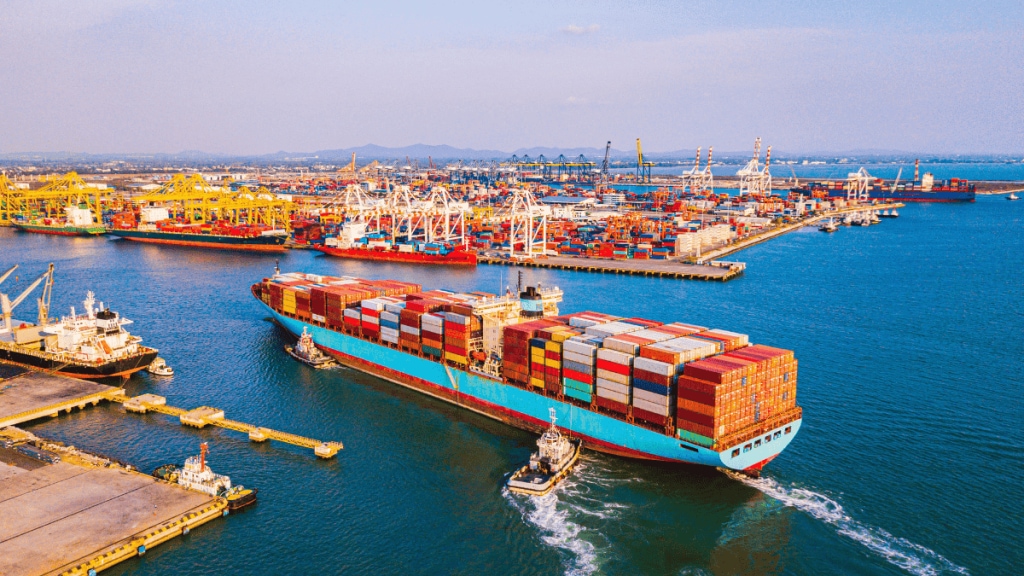The ongoing tension between Iran and Israel has its ramifications across the world, and not just in the region. Crisil Ratings has warned of significant margin pressure for some sectors if the situation escalates in the Middle East. “So far, the ongoing uncertainties in the Middle East have not had a significant impact on India Inc’s global trade. However, if the situation deteriorates, some sectors such as basmati rice could see heightened impact and will require monitoring, while others like fertilisers and diamonds — both cut and polished — may also see some impact.”
1. Basmati Rice: 14 per cent of India’s basmati rice exports are at potential risk
India exports a large quantity of basmati rice to Iran, and together, Iran and Israel accounted for nearly 14 per cent of India’s basmati rice exports in FY25. Though rice is a staple and demand may remain stable, a prolonged crisis could lead to payment delays from trading partners, stretching working capital cycles.” India’s ability to export to other countries in the Middle East, the US, and Europe reduces demand risk. However, a prolonged crisis can cause possible delays in payments from counterparties in these regions, elongating the working capital cycle.” CRISIL highlighted.
2. Fertiliser sector: What’s the big impact?
Israel is a major global producer of muriate of potash (MoP), a key fertiliser ingredient. India imports about 7 per cent of its MoP requirements from Israel. However, CRISIL Ratings highlights that MoP accounts for less than 10 per cent of India’s total fertiliser consumption, and the country has access to alternate suppliers, which helps reduce supply-side risk. “The share of MoP—whether as a final product or as an ingredient in other fertilisers—remains low at less than 10 per cent of domestic fertiliser consumption,” It noted.
3. Diamond jewellery: Israel accounts for 4% of India’s diamond exports
For the diamond industry, Israel serves as a trading hub. It accounted for 4 per cent of India’s cut and polished diamond exports last fiscal. Though some impact may be felt, Indian diamond exporters can reroute trade through hubs like Belgium and the UAE, with the US and Europe remaining the primary buyers. Crude volatility raises concern.
4. Crude volatility raises concern
The crisis has already pushed up Brent crude oil prices to around $73–76 per barrel in the past week, a rise from the April-May average of $65 per barrel. Crisil notes that while prices are still below the FY25 average of $78, further escalation disrupting energy supply chains could drive prices even higher.
If oil prices stay elevated for a longer period, India Inc’s profits could take a hit, especially in sectors directly or indirectly linked to crude oil.
5. Refiners face margin pressure amid high input costs
Upstream oil companies stand to gain as they earn more when prices go up, with limited changes in their cost structures.
Downstream refiners, however, may see squeezed margins due to high input costs and limited ability to pass these on to consumers via fuel price hikes.
Speciality chemical firms could also face pressure. Crisil says about 30 per cent of their costs are linked to crude. “The sector is only just witnessing a return to normalcy,” the report notes, after two years of suppressed demand and Chinese dumping.
6. Flight tickets: Fuel cost surge poses a challenge for the aviation sector
Fuel makes up 35–40 per cent of the operational costs of the aviation sector. Additionally, airspace diversions due to the conflict may lead to higher fuel use. However, CRisil notes that strong travel demand may help balance the impact.
Nomura has also Analysed the impact of increasing prices of oil of India’s biggest airline IndiGo, It estimate that for every $10 increase in oil prices, IndiGo’s operating profit, or EBITDAR (earnings before interest, taxes, depreciation, amortization, and rent), for FY26 could fall by nearly 17 per cent.
7. Paint and tyre sector could feel the pressure: CRISIL
The paint industry, too, could feel the heat. Around 30 per cent of production costs in this sector are crude-dependent, and tough competition may make it hard to raise prices.
The tyre sector, with nearly half its costs linked to crude, may pass on higher prices quickly in the replacement market. But price hikes to vehicle manufacturers may take time, causing temporary margin stress.
Flexible packaging and synthetic textile firms, where up to 80 per cent of costs are crude-based, could manage the pressure better thanks to stable demand and their ability to raise prices with a short delay.
Minimal trade with Israel and Iran helps limit exposure
India’s trade exposure to Israel and Iran is small, less than 1 per cent of its total trade last fiscal. This limits the direct impact on Indian companies for now. But disruptions in shipping routes or insurance costs could impact export-import dependent sectors if the crisis continues.
Monitoring on a case-by-case basis
Crisil Ratings concluded that the overall near-term impact on most Indian sectors remains limited. “Low capex intensity and strong balance sheets will help companies absorb short-term shocks,” the rating agency noted. But it warned that prolonged escalation could hurt more due to oil price spikes and supply chain disruptions that may drive inflation higher.
